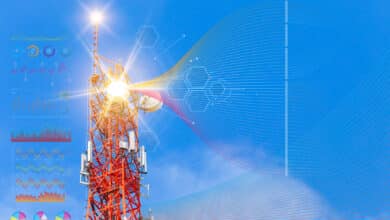All Post-Quantum, PQC Posts
-
Post-Quantum, PQC, Quantum Security
Q-Day Isn’t an Outage – It’s a Confidence Crisis
Cybersecurity lore often paints Q-Day (the moment a quantum computer cracks RSA/ECC encryption) as an instant "Quantum Apocalypse" where every system gets hacked immediately. Planes falling from the sky, banks drained in seconds, an overnight digital Armageddon - if that nightmare doesn’t happen, some assume Q-Day wasn’t so bad after all. But this view misses a crucial point. The real catastrophe of Q-Day isn’t that…
Read More » -
Post-Quantum, PQC, Quantum Security
Post-Quantum Negligence: Legal Risks of Failing to Prepare for the Quantum Threat
Quantum computing is no longer a far-off hypothesis - it’s a rapidly emerging reality that could render today’s encryption obsolete. For CISOs and their boards, this means a new kind of cybersecurity crisis is on the horizon. Sensitive data that is safely encrypted now may be sitting like a ticking time bomb, waiting to be cracked by tomorrow’s quantum machines. The message is clear: security…
Read More » -
Post-Quantum, PQC, Quantum Security
Sovereignty in the PQC Era: Standards, Trust, and Crypto-Agility
Post-Quantum Cryptography (PQC) is entering the standards stage, with the U.S. National Institute of Standards and Technology (NIST) recently selecting the first quantum-resistant algorithms. However, the future of PQC will not be as straightforward as simply adopting NIST’s choices globally. A strong push for digital sovereignty is emerging around the world, driven by eroding trust in foreign (particularly U.S.) technology. Nations are seeking greater control…
Read More » -
Post-Quantum, PQC, Quantum Security
Trust Now, Forge Later (TNFL) – The Overlooked Quantum Threat
What is "Trust Now, Forge Later" (TNFL)? Most discussions about quantum computing threats focus on “Harvest Now, Decrypt Later” (HNDL) - the idea that adversaries can collect encrypted data today and store it, hoping a future quantum computer will break the encryption and expose sensitive information. This risk is very real, especially for data that needs to remain confidential for decades (think government secrets, health…
Read More » -
Post-Quantum, PQC, Quantum Security
Quantum Readiness Is Not (Just) a Vendor Problem
In the recent IBM's “Secure the Post-Quantum Future” report 62% of executives admitted that their organization is waiting for vendors to make them quantum‑safe. In other words, they expect cloud providers, network equipment makers and software vendors to embed post‑quantum cryptography (PQC) so that internal teams can simply apply updates. This mindset is understandable - modern enterprises depend on vast supply chains - but it…
Read More » -
Post-Quantum, PQC, Quantum Security
Quantum-Readiness / PQC Full Program Description (Telecom Example)
Preparing a large telecom (or any enterprise) for the post-quantum cryptography era is a massive, multi-faceted undertaking, but it is achievable with foresight, resources, and commitment. We’ve seen that it involves much more than just installing new algorithms - it’s about transforming an organization’s approach to cryptography across potentially thousands of applications and devices, under uncertain timelines and in coordination with many external players. In…
Read More » -
Q-Day
Forget Q-Day Predictions – Regulators, Insurers, Investors, Clients Are Your New Quantum Clock
Whether you personally believe Q-Day will come in 5 years or 50, the world around you isn’t taking chances - and neither can you. As a CISO, you’re now being implicitly (and sometimes explicitly) told by every corner of your ecosystem that quantum preparedness is mandatory. Regulators demand it via hard deadlines. Key clients and partners demand it in contracts and RFPs. Insurers will soon…
Read More » -
Post-Quantum, PQC, Quantum Security
Device-Independent QKD (DI-QKD)
Modern quantum key distribution (QKD) has always carried a slightly uncomfortable subtext: the math may be information-theoretic, but the box on the rack is engineered. And engineered systems fail in messy, non-theoretical ways. That gap - between "provably secure on paper" and "secure in a live network with real detectors, lasers, firmware, calibration routines, and supply chains" - is exactly the space that device-independent QKD…
Read More »







